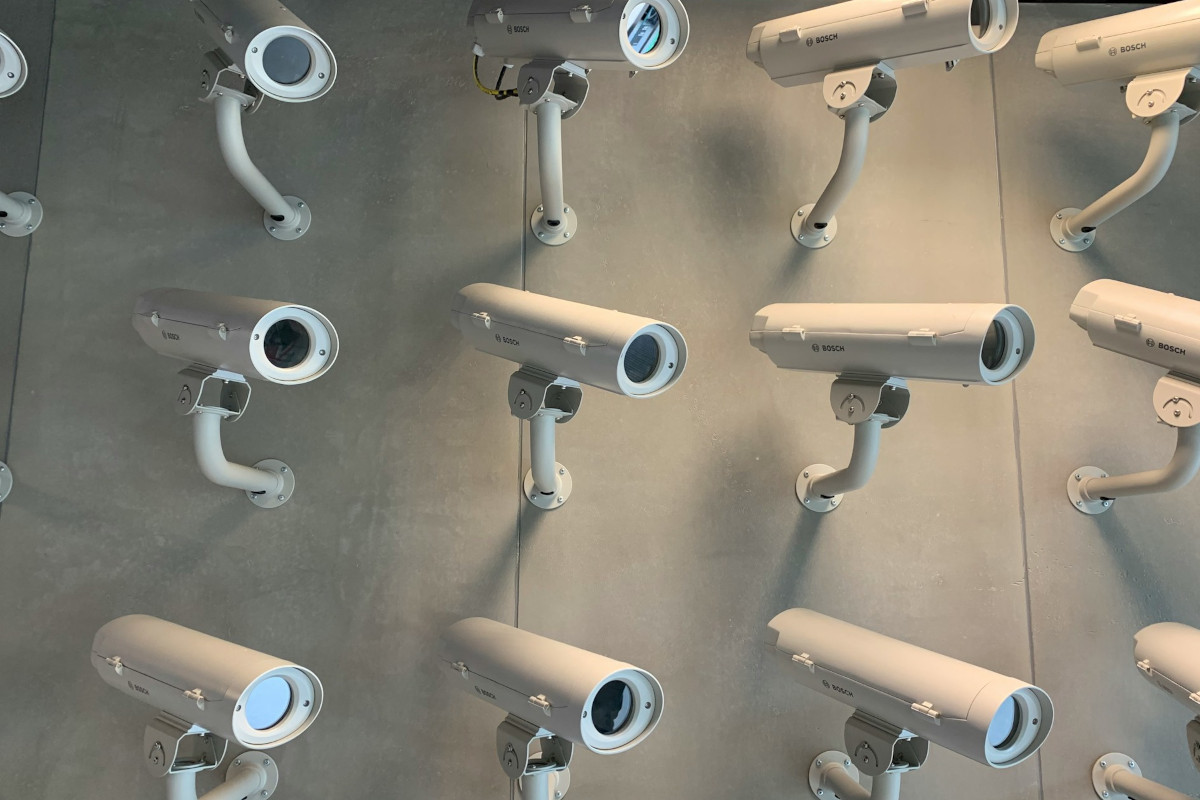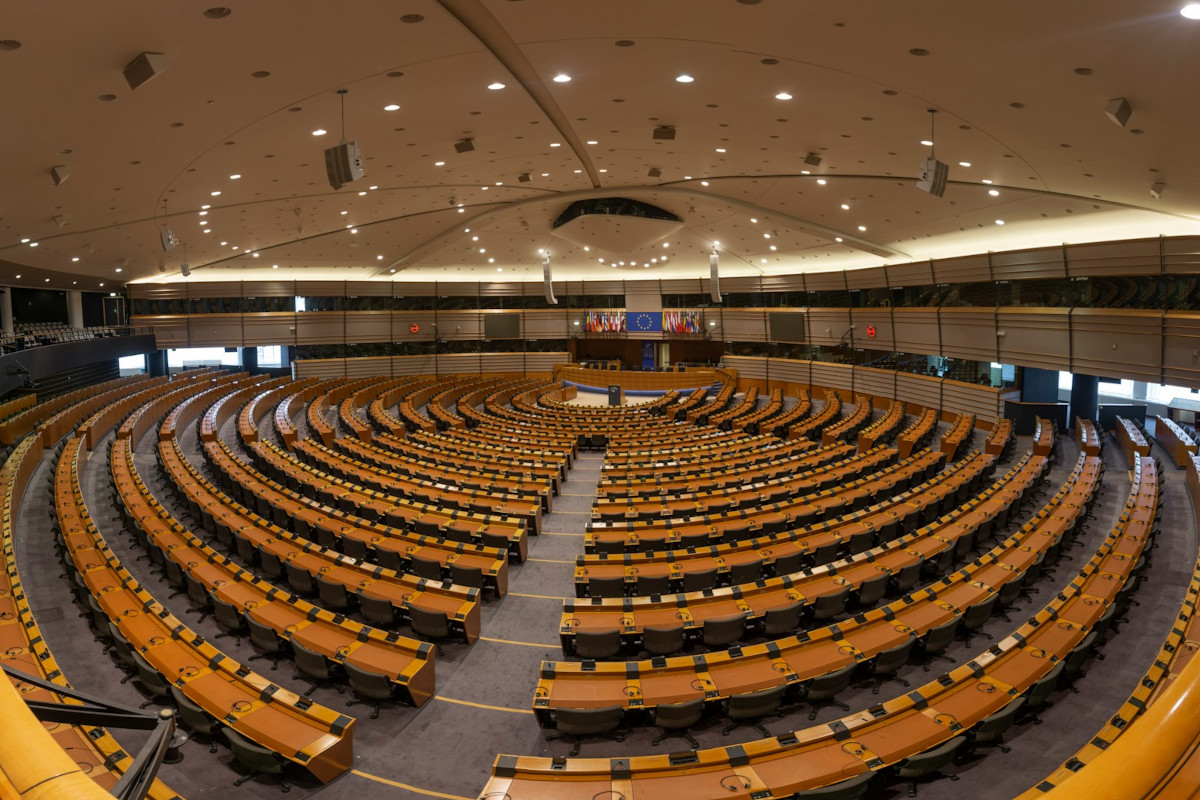Italy: Trento council fined for illegal AI video and audio surveillance projects
Topic
Country/Region
13 February 2024
Last month, the Italian privacy authority fined Trento city council €50,000 for the deployment of two artificial intelligence-driven urban surveillance projects that violated data protection rules. The two projects, which were funded by the EU, were accompanied by a third research project that avoided sanction from the privacy authority, as no data processing has so far taken place under its auspices.
Support our work: become a Friend of Statewatch from as little as £1/€1 per month.

Image: Nick Loggie, Unsplash
The projects in question - MARVEL (Multimodal Extreme Scale Data Analytics for Smart Cities Environments) and Protector (PROTECTing places of wORship) - involve the development of technology to try to detect crime in urban areas, mainly through the collection and processing of video, audio and social media data.
The privacy authority, however, considered the projects to be beyond the law, with the decision highlighting a number of problems: Trento city council does not have scientific research as its institutional purpose; the legal framework used was not adequate to justify personal data processing and its possible repercussions for people’s rights and liberties; and the data was passed on to third parties, including project partners.
Despite the use of techniques that seek to anonymise personal data, the privacy authority considered this inadequate to limit the possible “re-identification” of individuals. The transparency of procedures also came in for criticism, particularly as the information provided by the council failed to precisely specify the personal data processing involved, which included the possible use of conversations recorded by microphones deployed in the streets.
The privacy authority also noted that despite the project deploying “new technologies and systematic surveillance” in public spaces for “massive and invasive” data processing, no impact assessment was carried out.
MARVEL acquired images from video-surveillance cameras that had already been placed in the municipal territory for security purposes, and recordings from microphones deployed for the project itself in public streets. This data, which the city council claims was anonymised immediately after collection, were then automatically analysed using artificial intelligence techniques to detect events that may put public security at risk.
The project was coordinated by the Greek Foundation for Research and Technology Hellas and received almost €6 million in EU funding as part of the “industrial leadership” research theme. It aimed to enable “multi-modal perception and intelligence to develop the recognition of audio-visual scenes,” identifying events and working towards “smart urban security.”
Trento city council, which received €210,000 for its role in the project, provided access to video surveillance cameras for the project, as well as to six devices using microphones to record audio in the street, that were installed in February 2023.
PROTECTOR, meanwhile, provides for the collection of video surveillance footage alongside messages and comments involving hate speech published on social media, with the aim of revealing negative emotions and analyse information of interest for law enforcement to identify risks and threats for places of worship.
Coordinated by the Estonian security research consulting firm Saher, it ran for just over two years, ending in April 2023. The ombudsman’s measure notes that the project consortium asserts its use of “so-called ethics/privacy-by-design,” to develop surveillance technology tested “in selected places of worship in Belgium (Antwerp), Bulgaria (Sofia) and Italy (Trento), in order to improve law enforcement agencies’ analytical capabilities.” This is provided through automated analysis of visual and text data, as well as object detection, movement tracking and “anomaly detection”.
PROTECTOR was backed with €1.8 million from the EU’s Internal Security Fund, as part of a work programme that sought to “enhance the protection of places of worship.” It also received the support of the G20 Inter Faith Forum.
The privacy ombudsman’s investigation was initiated following press reports that Trento city council was testing three AI systems funded through EU research projects. The ombudsman’s press release expresses a willingness for this authority to cooperate with city councils, including Trento, to support uses of AI solutions that comply with data protection norms.
Documentation
- Ombudsman’s statement: Garante per la protezione dei dati personali, Videosorveglianza, no all'intelligenza artificiale che viola la privacy. Il Garante sanziona il Comune di Trento per aver condotto due progetti di ricerca scientifica, utilizzando telecamere, microfoni e reti sociali, in violazione della normativa sulla protezione dati, 11 February 2024
- Ombudsman’s measure: Provvedimento dell'11 gennaio 2024 [9977020]
Our work is only possible with your support.
Become a Friend of Statewatch from as little as £1/€1 per month.
Further reading

No real safeguards for new Europol data powers, says data protection authority
A new proposal to enhance the powers of Europol and to strengthen its cooperation with Frontex in the name of fighting migrant smuggling falls short of respecting data protection and fundamental rights standards, according to the European Data Protection Supervisor (EDPS).

UK participation in “unnecessary” police facial recognition system needs “open, thorough, democratic debate”
MPs must ensure thorough scrutiny and a meaningful democratic debate on potential UK participation in a pan-European police facial recognition system that is unnecessary, disproportionate and undesirable, says a statement coordinated by Statewatch and signed by 13 other civil society organisations.

A clear and present danger: Missing safeguards on migration and asylum in the EU’s AI Act
The EU's proposed Artificial Intelligence (AI) Act aims to address the risks of certain uses of AI and to establish a legal framework for its trustworthy deployment, thus stimulating a market for the production, sale and export of various AI tools and technologies. However, certain technologies or uses of technology are insufficiently covered by or even excluded altogether from the scope of the AI Act, placing migrants and refugees - people often in an already-vulnerable position - at even greater risk of having their rights violated.
Spotted an error? If you've spotted a problem with this page, just click once to let us know.

